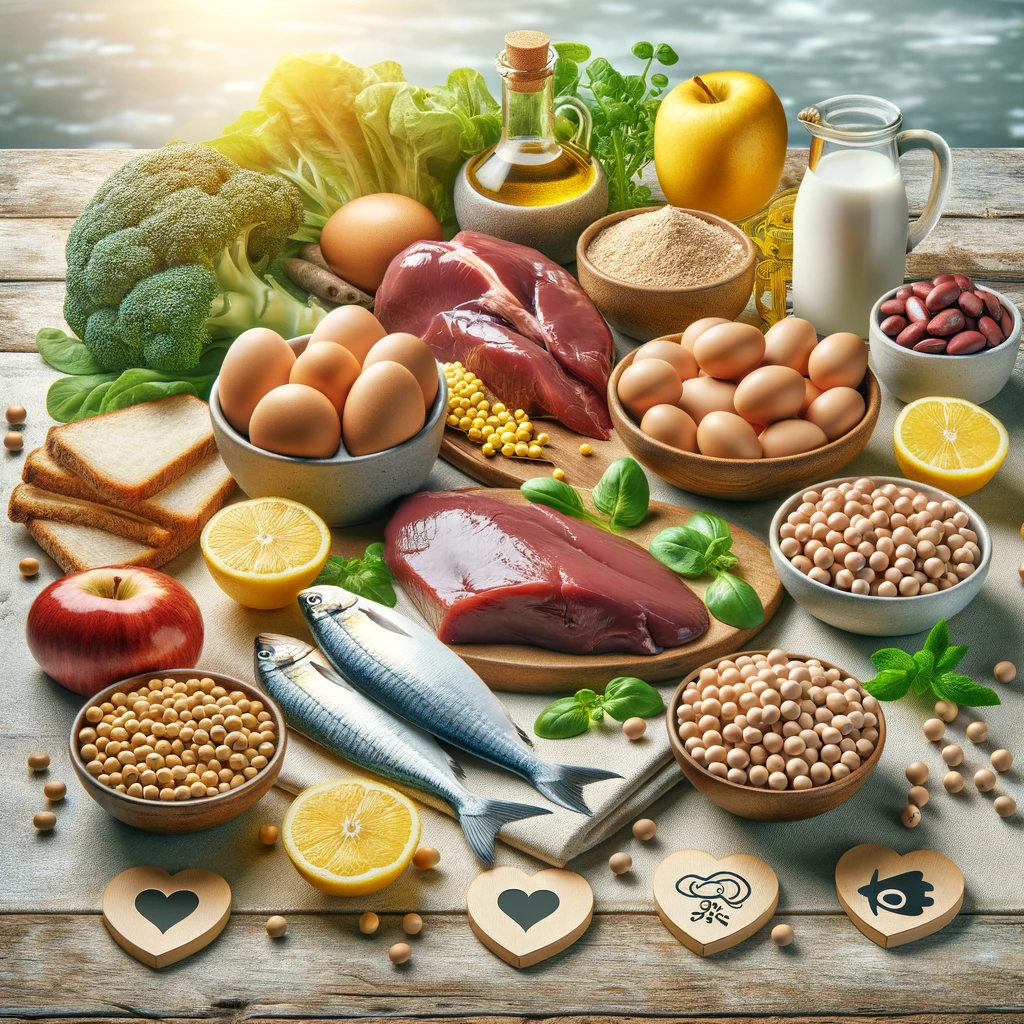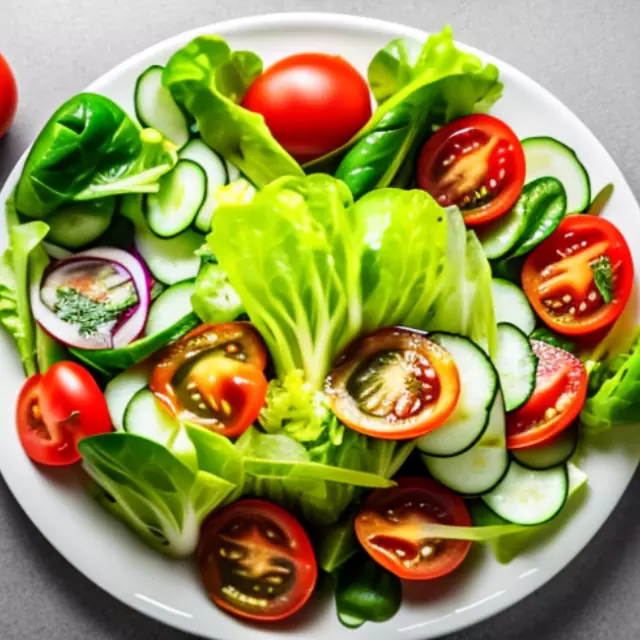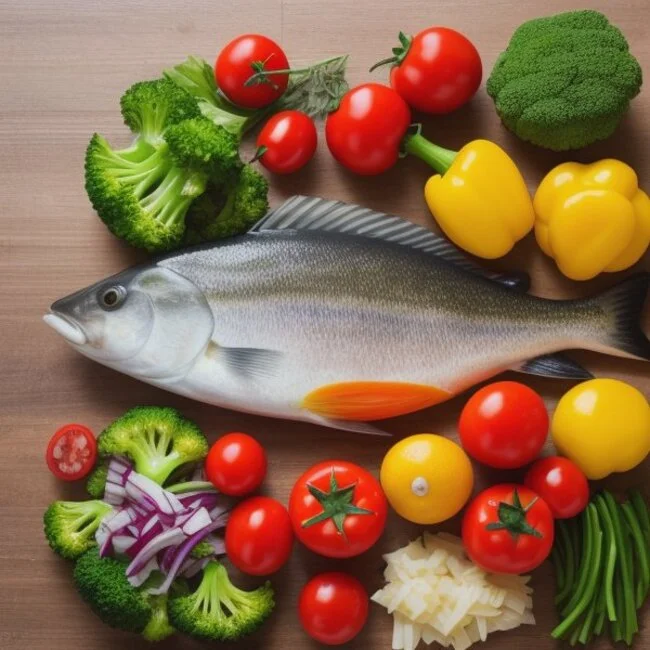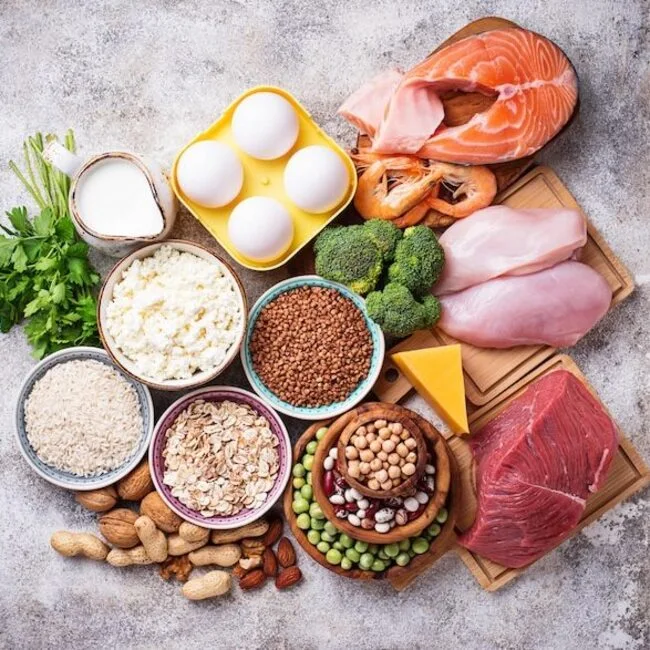Choline, also known as vitamin B4, is an important substance that plays a key role in keeping our body healthy. Choline is not a real vitamin, but its importance for our body is comparable to B vitamins. This substance performs numerous functions necessary for the normal functioning of organs and systems. In this article, we will take a closer look at what choline is needed for, its functions, nutritional sources, and also discuss its deficiencies, benefits, possible side effects and safety of consumption. We explore the world of choline and its importance to your health.
Functions of Choline in the Body
Choline plays many important roles in our body, covering various systems and functions. It is crucial to understand that choline is an integral part of our health, and its deficiency can affect various aspects of our lives. Let’s delve deeper into the functions of choline in the body and why it is so vital for us.
Brain Function: One of the key functions of choline is to support normal brain function. Choline is a crucial building block for acetylcholine, a neurotransmitter that transmits signals between neurons in the brain. This substance is involved in memory formation, learning, and cognition.
Cardiovascular System: Choline also influences the cardiovascular system. It helps control cholesterol levels in the blood and prevents the accumulation of excess fat deposits in the blood vessels. This reduces the risk of developing cardiovascular diseases.
Metabolism of Fats: Choline participates in the metabolism of fats. It helps break down fats in the liver, which is particularly important for preventing fatty liver disease and maintaining its function.
Reproductive Function: Choline also holds significance for the reproductive system. It is involved in the synthesis of phospholipids necessary for the formation of cell membranes in eggs and sperm.
All these functions make choline an important element in our diet. However, to get the full picture, let’s move on to discussing the sources of choline and the importance of its adequate intake.
The Importance of Choline for Pregnant Women and Fetal Development

One of the most crucial aspects of the role of choline in the body is its impact on the health of pregnant women and fetal development. This period requires special attention to nutrition, and choline, as a vital nutrient, plays a significant role in maintaining the health of both the expectant mother and the developing baby. Choline is essential for proper brain development, as it serves as a building block for brain cells and the nervous system, ensuring the optimal growth and functioning of the fetal brain.
Health of Pregnant Women: The level of choline in a pregnant woman’s body influences her health. This vitamin-like element is necessary for maintaining the normal function of the liver and the brain, which is especially important during pregnancy. A deficiency of choline can lead to memory and concentration problems, worsen liver function, and increase the risk of fatty liver disease.
Development of the Fetal Nervous System: Choline plays a crucial role in the development of the fetal nervous system. This vitamin-like element serves as a building block for the brain and spinal cord cells of the baby. A deficiency of choline in the diet of a pregnant woman can lead to disruptions in the development of the nervous system and an increased risk of neurological disorders in the child.
Research shows that the level of choline in the diet of pregnant women should be at an adequate level to ensure normal development and the health of both the mother and the future baby. Let’s now explore where you can find choline in food and how to ensure its sufficient intake during pregnancy.
Sources of Choline
Understanding where to obtain an adequate amount of choline in your diet is key to maintaining health and meeting the needs of your body. Choline can be obtained from various foods, and it is important to include them in your diet to ensure optimal consumption of this vitamin-like substance.
Beef Liver: Beef liver is one of the richest sources of choline. It not only contains this vitamin-like element but also provides many other valuable nutrients.
Eggs: Eggs, especially the yolk, are also rich in choline. They are easily incorporated into your diet and are an essential source of this substance.
Soybeans: Soybeans and soy-based products such as tofu and soy milk contain choline, making them an excellent choice for vegetarians and vegans.
Chicken: Chicken, particularly chicken breast, is a good source of choline. It provides a substantial amount of protein and other nutrients.
Fish: Various types of fish, such as salmon, tuna, and cod, contain choline, as well as valuable omega-3 fatty acids.
Potatoes: Among vegetables, potatoes are a source of choline. They can be included in various dishes and prepared in different ways.
Beans: Different types of beans, including beans and chickpeas, also contain choline. They can be used in making soups, salads, and other dishes.
For those who struggle to obtain an adequate amount of choline from typical foods such as eggs and meat, there is also an additional option – lecithin. Lecithin is a source of choline and can be taken as a supplement. However, it is important to monitor the dosage and consult a doctor before starting any supplements.
By ensuring proper nutrition, including the aforementioned sources of choline in your diet, you can support your health and meet your body’s requirements for this essential vitamin-like substance.
Risks and Consequences of Choline Deficiency
A deficiency of choline in your diet can have serious health consequences. This vitamin-like element performs numerous essential functions in the body, and its deficiency can affect various aspects of your health. Let’s explore the potential risks and consequences of choline deficiency and identify vulnerable risk groups.
Poor Memory and Concentration: Choline deficiency can lead to memory and concentration problems. This can be particularly significant for older individuals and those experiencing age-related changes in brain function.
Liver Problems: Choline plays a crucial role in liver function, and its deficiency can lead to fatty liver degeneration, which can progress to more serious liver diseases.
Cardiovascular Diseases: Choline deficiency may increase the risk of developing cardiovascular diseases as it contributes to the accumulation of fat in blood vessels and elevated cholesterol levels.
Risk for Pregnant Women and Infants: Pregnant women and infants are especially vulnerable to choline deficiency. A lack of this substance can affect the development of the fetal nervous system and increase the risk of neurological disorders in the child.
Vegetarians and Vegans: Those following a vegetarian or vegan diet may face an increased risk of choline deficiency since many sources of choline, such as eggs and meat, are excluded from their diets.
It is essential to understand that choline deficiency can be prevented by incorporating a variety of choline-rich foods into your diet. Additionally, for certain risk groups or in cases of challenging dietary intake, considering supplementary lecithin after consulting with a doctor may be an option.
Maintaining an optimal level of choline in your body plays a crucial role in maintaining health and preventing various diseases.
Side Effects and Recommendations for Safe Consumption
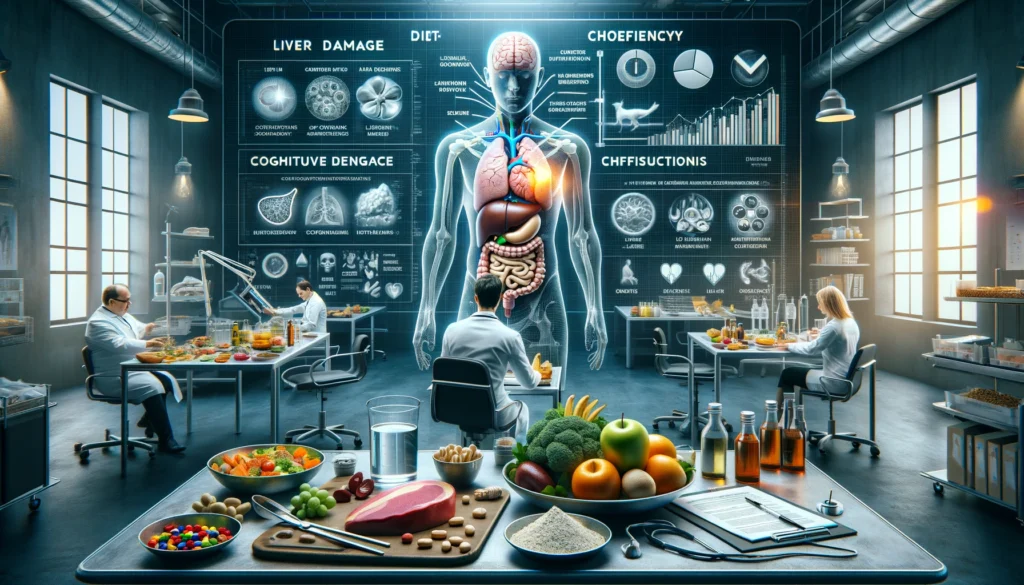
Choline has numerous beneficial functions in the body. However, it is important to observe safe consumption limits to avoid potential side effects. Let’s discuss the recommendations to ensure safe choline intake and the possible consequences of overdose.
Safe Consumption Limits: For adults, the recommended daily intake of choline is around 550 milligrams. Pregnant women may require slightly higher levels, approximately 450-550 milligrams per day, and lactating mothers around 550-600 milligrams per day. For children of different ages, consumption levels may vary. It is important to ensure that choline intake falls within the recommended limits.
Side Effects: Choline is generally safe when consumed in recommended doses. However, in cases of overdose or excessive intake of choline, side effects such as insomnia, headaches, diarrhea, and nausea may occur. Very high doses of choline can lead to more serious issues, such as increased acetylcholine levels in the brain, which may trigger seizures.
Individual Sensitivity: It is important to note that the sensitivity to choline may vary among individuals. Some people may tolerate it easily, while others may experience side effects even with a slight excess.
Consultation with a Doctor: If you have medical issues or plan to significantly increase your choline intake above the recommended levels, it is crucial to consult a doctor. They can provide you with personalized recommendations and assess your need for this vitamin-like substance.
Choline consumption is an essential part of a healthy diet, and when following recommendations for safe consumption, it can contribute to your overall well-being.
Conclusion
Choline is an incredibly important element in our diet, playing a key role in maintaining our health and ensuring the normal functioning of our organs and systems. In this article, we have explored various aspects of choline, from its role as a vitamin-like substance to its side effects and recommendations for safe consumption.
Choline influences brain function, supports the cardiovascular system, participates in fat metabolism, and is crucial for the development of the fetal nervous system in pregnant women. Insufficient choline intake can lead to memory problems, liver dysfunction, and an increased risk of cardiovascular diseases.
It is recommended to include choline-rich foods in your diet, such as beef liver, eggs, soybeans, chicken, fish, potatoes, and beans. It is also important to adhere to the recommended levels of choline consumption to avoid side effects.
Choline is an integral part of a healthy diet, and its proper intake can contribute to your overall well-being and the maintenance of a healthy lifestyle. Remember to consider the level of choline in your diet and recognize its importance for your health.

